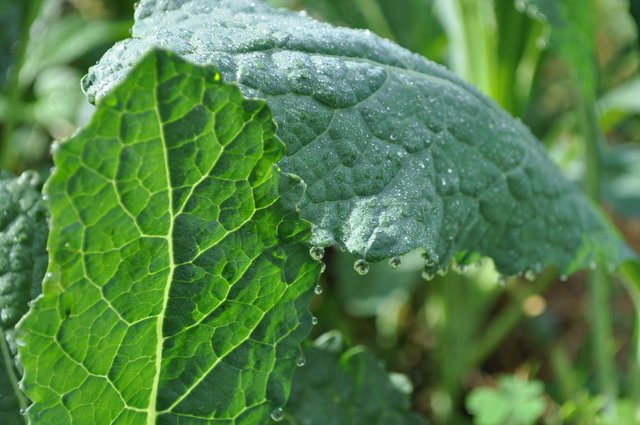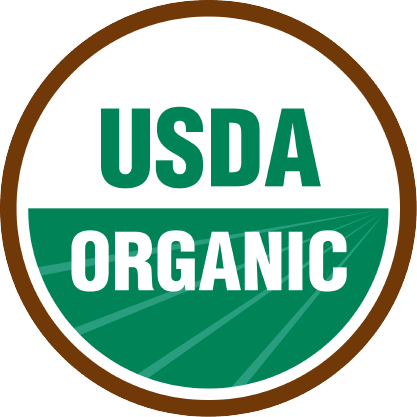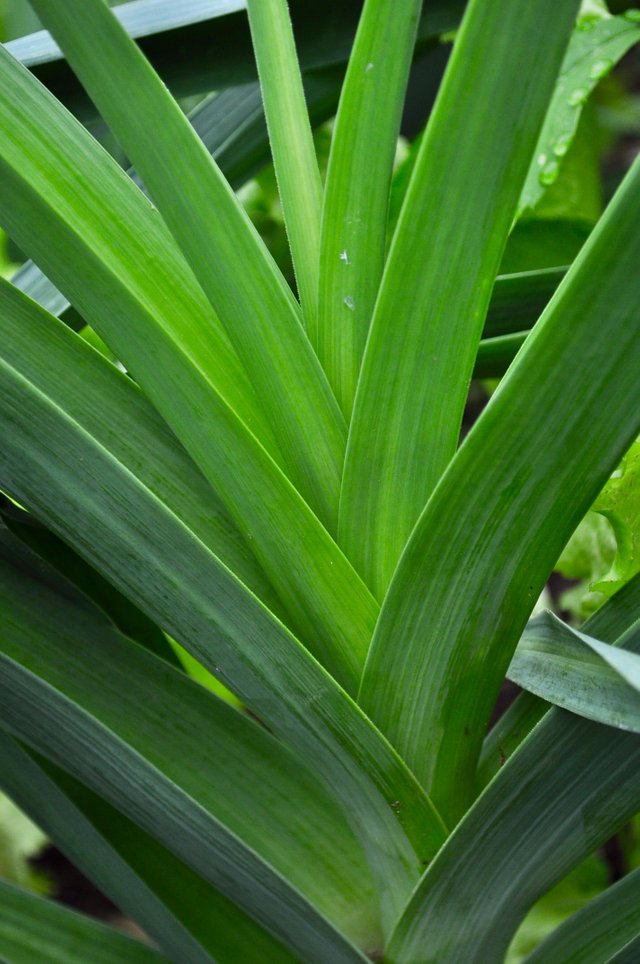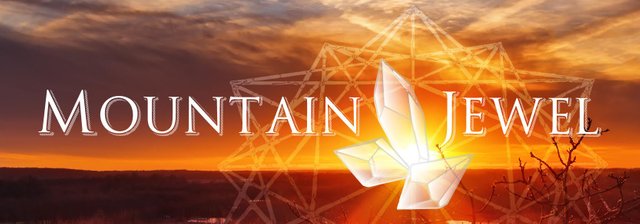Certified Organic: What's Behind the Label? Is It Good for Small Farms or Consumers? (DTube Daily Vlog)
When you go to the store to buy food, do you prioritize food that is certified organic?
Recently we received a grant to get Certified Organic (should we so choose). From the farmer's commercial perspective, certified organic products sell for more money & it seems the consumer base is really looking for these products lately.
Let's not get confused here: not all organically grown food is certified organic.
In fact, these are two drastically different things and this is the subject of the video today. Certified organic food simply constitutes food from farms which have gone through rigorous regulations.

Organically grown kale from our homestead
Because we are interested in this economy and in selling our products at some point (value-added products mostly and not ephemeral vegetables - subject for a whole other post!), we went ahead and had an "Organic Plan" drawn up for us. As mentioned above, we got a grant to do this and so incurred no "out of pocket" expenses.
As we talked with the woman who was to write up our plan and realized all of the "hoops" we'd have to jump through in order to qualify for Organic Certification through the USDA (United States Department of Agriculture), we started to have second thoughts.

We share many of these thoughts in the video and I'll encourage you to watch it for the details!
In short, it may not be worth it for a small farm like us to go through the trouble of getting the Organic Cert. In fact, our standards that we already grow by are even higher than those stipulated through the certification process. However, it is a costly and timely process and one that requires a lot of documentation.
We are already “beyond organic”!
Is it worth it in the end?

organic leek in our high tunnel
We have a few questions for you as the consumer:
- Do you prioritize buying certified organic food from the grocery or farmer's market?
- Is a relationship with a farmer who grows organically with all natural methods and perhaps sells the produce at a lower cost something you are actively seeking out?
- Do you think small farms should bother going certified organic to "stay in the game" or should they focus on building relationships?
- Is it worth it for small farms to get certified given the fact that it may cost them more than they're able to make in an annual cycle?
This is a large conversation and really with this first vlog we're simply opening the door. We have a few months to decide whether we want to go through with it and want to hear from you all who are more open minded and educated than the general populace.
I remember hearing a story about a small farm who netted $40,000 in one year through growing and selling organically grown vegetables, yet after expenses (which for farm labor, equipment, inputs, seed, and other expenses cost $38,000) made only ~$2,000. Such is the case with many small farms where each person works over 60 hours/week and I'm not sure the average consumer is aware of this.
It's so important to support small farms for this reason and many others -- that is, unless you want the groceries to be filled with mass scale farm products instead of a diverse host of small farms throughout the country.
We are already losing our farmers at incredible rates.
This is obviously a huge conversation, but it boils down to this:
Where do you put your money?
Please watch the video and let us know what you think.


This vlog was made by passengers of the #ecoTrain. Take part in conversations to change the world!
▶️ DTube
▶️ IPFS
It sounds like the priority should definitely be to get to know farmers and buy directly from them.
My situation has been that I buy from an organic grocery store 10 mins. from my house that has its own parking lot and where I can get small amounts of fresh produce a couple times a week, quick in and quick out. Since everything they have is organic, that's what I get.
But if I was buying larger quantities to feed more people, or had easier access to farmer's markets where I was (meaning not a 2 hour endeavor just to buy produce), it would definitely be worthwhile to invest the time in developing relationships with farmers I could trust without the organic seal. I would definitely prefer farmers not to need to go through all that bureaucracy and expense.
"It sounds like the priority should definitely be to get to know farmers and buy directly from them." - YUP.
what you bring up is a key component I feel to the whole situation. The access to the relationships and markets is lacking in MUCH of the country, and availability of high quality organic produce at affordable prices and fair compensation for the producer is lacking.
What you say about a 2 hour affair highlights one of the major factors for widespared adoption of organic foods in that on the whole they are NOT easy to obtain. We have 1 or 2 items we choose to buy form the local grocer, elsewise we choose to buy bul thorugh co-op or take the 2 hour trip to a larger town to get the goods that we or our commnuity doesn't produce.
It's a complex issue isn't it, thanks for weighing in.
I just love this!
me too! me too! We are absolutely beyond organic.
We looked into obtaining the organic certification in Canada and decided not to. We decided the process is far too costly, not just in money but in time. All of that bureaucracy would just bring a negative energy to the homestead. Who needs all that stress and for what? A certificate for a program that does not even meet my own standards?
I read one small farm account of the organic certification process recently and it has added a lot of stress to their lives but they do make a bigger profit. No idea what percentage increase they have seen but obviously enough for them to suffer through it.
We've just decided to provide plenty of information to the consumer about how our food is grown and build strong relationships. You can't say organic but when you are beyond organic there's a lot you can say that means a whole lot more! (I hope) :)
when I do purchase groceries ... I do go to the farmers market first - always. There is an Amish family that is beyond organic and not certified - I trust them and their honest labelling has inspired me that it is possible to sell our goods without a certification.
In the stores I look for the organic section. After seeing the machines that spray chemicals on the fields ... organic is better than being totally uncertain but I am not fooled in thinking that it is grown to our standards.
how many growers really have the time to sort out all the certs, paperwork etc. that it takes? haha, a certificate that you don't agree with! I get it big time. It's like getting into a club that you're not even that into...
That's great that you know a family, trust is MUCH stronger and more valuable than a centralized label. And there are always times you can't know the grower, and where the label makes sense. Still, I have to side with you on going above and beyond and not paying too much attention to the centralized ideas of "organic" cause we all know they aren't strict enough and limited in scope. Appreciate your input.
I understand how hard it is to get the organic certification. My aunt has an organic farm. Everything she produces is raised above and beyond the standard that are expected yet she can't receive the certification due to the farm down the road. Although her soil has tested organic they claim that there could be run off from the surrounding land which could compromise her produce. She too found so much red tape around it all. I think as long as you know who you're buying from and are able to see how they grow, I'd much rather give my money to those people than the bigger commercialized organic growers just because they have a certificate.
I have found a promising solution to the runoff problem. Our homestead is a narrow 10 acre strip between 2 hayfields, one of which does get sprayed. I am going to build tall (hopefully >10 feet) hugel beds along the perimeter. This will stop runoff, buffer highway noise, add to useable surface area, and stop overspray carried by wind. Still not gonna go after the certification, though.
Oh wow that's a great solution. I'd be keen to know what plants you intend to use in the hugel Kultur bed to help this process? .😊😊
Well for my purposes, since I am using the space primarily for grazing, it will be mostly just grass. I am researching possibilities for shrubs or trees for the top edges which would increase the hight of the windbreaks and supply more shade but haven't really decided for sure yet.
That's a tough situation for your aunt, sorry to hear about that. It gets so red tape-ey once you get into it all!
The certificate can be helpful if you don't have a cance to meet or relate to the grower, but i totall agree with you. More $ to the folks doing the good work on a small scale! Thanks for you input.
Relationships!! All the way. As you mentioned the standards are being surpassed and that's better then a stamp in my mind. I am loving your vlogs!! Good for you in all your endeavours. 💜💛💚💙
Thanks dear! We tend to agree just curious to hear from our steem fam too! 💜💜💜
You are welcome 😊 Yes! It will be interesting to see what people who respond think. Personally, i prefer locally grown non-stamped organics. Especially if the growers are willing to engage in relationship!
We will never be certified organic, the cost is just too high and we don't make enough money to justify it.
Also our entire farm is only 160' wide. We must have a 50' barrier on either side of us. That would leave us 60' we could use. Not happening.
Our hens will never be certified as we feed animal protein, a crucial component to chicken diets. This is banned by certifiers.
And like you, our practices exceed the regulations. The people who buy our products know this, as we are very upfront about how and why we grow as we do.
Huh, never knew about animal protein being banned, thanks for sharing that tidbit. Do you have a prefered animal protein to feed the ladies? We just fed our chickens some fish scraps and they LOVED it, although they have had a tough time ripping carcasses (road kill) open.
I'm so happy you've found folks who believe in and trust the age old system of human to human without a gov't or company in between. This is a crucial link to not only our food system, but also our social structure The organic cert system is certainly NOT geared for folks like us, and I'm happy to hear from you on this topic. ;)
We primarily feed pollock, but do feed any butchering waste except chicken to them. The chicken goes to the pigs.
A side note: fish from the carp family contain an enzyme called thiaminase that is harmful to them.
Woah good to know thanks!!
I do not seek out organic labelled produce. However, in California there is enough demand that sometimes the organic produce is almost the same price as non-organics. The market is clearly going towards organic here. But this is also a wealthy area. Consumers have the money to make the choice. They can afford either and choose organic. Organic certification should be a business decision for you. Figure out the markets you will sell into and see if it pays. Now let me get philosophical, I am a small business owner. Regulations are a deal with the devil between government and big business. Regulations often keep small companies out of markets (or at least unprofitable) with no benefit to consumers. Big companies support politicians. Big companies go along with regulations because it is good for them.
ooh, you really brought out the stop here eh? The link between big companies and regulations is a major factor in the structure of our "civilized" culture, although it rarely seems civil to me! It's really crazy what can pass for supporting the "greater good" when it's really propping up the few...
I digress from the point but what you bring up is an important consideration in your food vote. How and where is your food produced, and how trustworthy is it? I feel these are the underlying questions for me, and it seems the regs more often than not just get in the way. Thanks for your 2 cents.
I buy organic food in stores, mainly because at least I have an idea that farmers were using natural methods to grow said food. However, at a farmer's market, I don't care if it's certified organic—if a farmer tells me the don't use chemicals or spray their food, I'm happy to buy from them. To me it matters much more how it was grown than what the label says, but it's difficult in the store to know unless that certification is there. I'm sorry that organic farmers are paying this price. To me, it would make more sense for growers who use conventional methods and pesticides to have to pay penalties, or to put labels on the food that say they've been sprayed. Can't organic just be the normal, please?
That last line nailed it! we should consider redefining conventional to alter-native, as in an altering of what is native and natural. The chemical is Ag are not only NOT penalized, but often subsidized! What a wacky system!
I hear you on purchasing from stores, as I don't know any olive oil producers but want high quality organic oil and this will ensure at least some degree of quality is upheld. Hope I'm not kidding myself on this one ;).
In all fairness, there are grants in our area for preserving forest land, implementing strategies for soil and water health and NOT clear-cutting. So at least there is some money going to support those who pracice Earth care. Thanks for your commnet.
I will say that local is more important than organic to me. I would buy from the farmer's market first. Once at the market, I would definitely prefer organic, but I always talked with all the farmers there, so I didn't give two shits if they were certified or not. That said, I hardly think I represent the masses. I think a lot of people want to buy organic but they don't want to go to the effort of the farmer's market or developing relationships with farmers. They're gonna look for the sticker. I guess it just depends on what you have going there in your area.
Ya, it totally is dependent on what you value and the options available to you, many folks prefer convenient options over others. Perhaps even if the less convenient ones are more ethical...
I agree, it's all about really talking to folks, getting to know your food and forgetting the labels. It can sometimes be tough though.. I talked to a blueberry producer who tried to convince we that glyphosate (roundup) didn't effect human Health. Yet another reason to know your food.
Wowsers. The effects of glyphosate are pretty well documented. The capacity of the human mind to deceive itself is sort of astounding. Yeah. Knowing your farmer may be as important as knowing your food.
gr8
Well I would personally prefer to get all my food and household products from artisans that I know and have a relationship with. That's why I will not be pursuing organic certification for our small farm. The glass door policy seems like the best option for everyone. Those we serve will surely appreciate the reduced cost.
"glass door policy seems like the best option for everyone" totally agree with this. If all GMOs were labeled, and there was fair reporting on the effects of conventional agriculture we would be in a different position as a culture I believe. Transparency is key but is often sorely lacking as companies scale up. But I hear you on the artisinal side of things, that will ALWAYS have a place, and I feel the general population is waking up to the importance and value of small scale. Thanks for the comment.